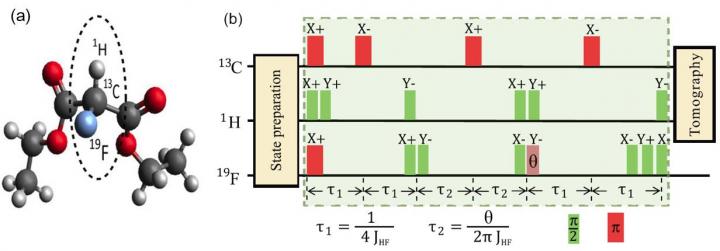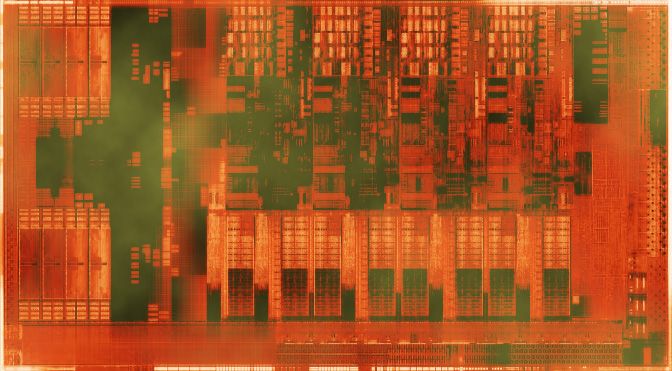Archive for the ‘computing’ category: Page 822
Mar 12, 2016
Evolution of Video Game Graphics 1952 — 2015
Posted by Shailesh Prasad in categories: computing, entertainment, military, robotics/AI, space

This is all the best games from every year 1952–2015.
Here is the list:
1952: Nimrod Computer Game
1958: Tennis For Two
1971: Computer Space
1972: Pong
1973: Space Race
1974: Clean Sweep
1975: Anti-Ai
1976: Blockade
1977: Indy 500
1978: Sea Wolf 2
1979: Crash
1980: Pac-Man
1981: Ms. Pacman
1982: Paratrooper
1983: Super Gridder
1983: Hunchback
1984: Sokoban
1985: Super Mario Bros
1986: Outrun
1987: Leisure Suit Larry in the Land of the Lounge Lizards.
1988: Super Mario Bros 3
1989: Xenon 2
1990: Prince Of Persia
1991: Prehistorik
1992: Wolfenstein 3D
1993: Day of the Tentacle
1994: The Lion King
1995: Command & Conquer
1996: Tomb Raider
1997: Gta
1998: Half Life
1999: Quake 3
2000: Max Payne
2001: Gta 3
2002: Serious Sam: The First Encounter
2003: Medal Of Honor Allied Assault
2004: Half Life 2
2005: World Of Warcraft
2006: Need For Speed Most Wanted
2007: Crysis
2008: Assassin’s Creed
2009: Call Of Duty Modern Warfare 2
2010: Red Dead Redemption
2011: World Of Tanks
2012: Battlefield 3
2013: Gta 5
2014: Wolfenstein The New Order
2015: Tom Clancy’s The Division
Mar 11, 2016
Microsoft spending a fortune on Quantum computing
Posted by Karen Hurst in categories: computing, quantum physics
Peter Lee, the corporate vice president of Microsoft Research said that Quantum computing is “stupendously exciting right now.”
Apparently it is Microsoft Research’s largest area of investment and Lee is pretty certain it is on the verge of some major scientific achievements.
Mar 11, 2016
Can we build quantum-resistant encryption?
Posted by Karen Hurst in categories: computing, encryption, engineering, finance, government, internet, quantum physics
I do believe we’re within a 7 to 8 yr window at this point with Quantum hitting the broader main stream computing infrastructure. However, we have banks in Europe that have been using the technology for network communications, Los Alamos Labs experimenting since late 2011 with Quantum Internet, now China is launching their own Quantum Satellite for wireless communications; so I do suggest a strategy needs to be developed over the next 2 to 3 yrs for government & industry around how to manage & plan for deployment of Quantum especially with China & Russia’s interest.
New research demonstrating that quantum computing is now just an engineering challenge moves the possibility of encryption-cracking machines to the front burner.
Mar 11, 2016
Chinese scientists realize quantum simulation of the Unruh effect
Posted by Karen Hurst in categories: computing, cosmology, electronics, particle physics, quantum physics
Quantum mechanics and relativity theory are two pillars of modern physics. With their amalgamation, many novel phenomena have been identified. For example, the Unruh effect [1] is one of the most significant outcomes of the quantum field theory. This effect serves as an important tool to investigate phenomena such as thermal emission of particles from black holes and cosmological horizons [2]. It has been 40 years since the discovery of the Unruh effect, however, this effect is too weak to be observed with current technique. There have been a lot of attempts in searching for the observational evidence of the Unruh effect and in general the experimental observation is still of great challenge. To address this issue, quantum simulators [3, 4] may provide a promising approach. Quantum simulation is widely applied for simulating the quantum systems which cannot be efficiently simulated by classical computers or are not directly tractable by the current techniques in the laboratory.
The researchers, led by Prof. Jiangfeng Du from University of Science and Technology of China, reported an experimental simulation of the Unruh effect with an NMR quantum simulator [5]. The experiments were performed on a Bruker Avance III 400MHz spectrometer. The researchers used a sample of 13C, 1H and 19F nuclear spins in chloroform as the NMR quantum simulator, as shown in Figure 1(a). The simulated Unruh effect on the quantum states can be realized by the pulse sequence acting on the sample, as depicted in Figure 1(b). By the quantum simulator, they experimentally demonstrated the behavior of Unruh temperature with acceleration, which agrees nicely with the theoretical prediction, as shown in Figure 2. Furthermore, they investigated the quantum correlations quantified by quantum discord between two fermionic modes as seen by two relatively accelerated observers. It is shown for the first time that the quantum correlations can be created by the Unruh effect from the classically correlated states. This work was recently published in the Science China-Physics, Mechanics & Astronomy.
It is interesting that the Unruh effect was in Feynman’s blackboard as one of the issues to learn at the time of his death in 1988, while it was also Feynman who conceived the idea of quantum simulation in 1982. This quantum simulation of the Unruh effect will provide a promising window to explore the quantum physics of accelerated systems, which widely appear in black hole physics, cosmology and particle physics.
Continue reading “Chinese scientists realize quantum simulation of the Unruh effect” »
Mar 11, 2016
Will the End of Moore’s Law Halt Computing’s Exponential Rise?
Posted by Karen Hurst in categories: computing, Ray Kurzweil, singularity
“A common challenge to the ideas presented in this book is that these exponential trends must reach a limit, as exponential trends commonly do.” –Ray Kurzweil, The Singularity Is Near
Much of the future we envision today depends on the exponential progress of information technology, most popularly illustrated by Moore’s Law. Thanks to shrinking processors, computers have gone from plodding, room-sized monoliths to the quick devices in our pockets or on our wrists. Looking back, this accelerating progress is hard to miss—it’s been amazingly consistent for over five decades.
But how long will it continue?
Continue reading “Will the End of Moore’s Law Halt Computing’s Exponential Rise?” »
Mar 10, 2016
Microfluidics: DARPA is betting embedded water droplets could cool next-gen chips
Posted by Karen Hurst in categories: computing, futurism
More urgency placed on making Microfluidics/ embedded H2O droplets for cooling microchips so that the emergence of high performing microchips coming in the future.
DARPA and Lockheed Martin have a plan to build microfluidic cooling into modern microprocessors. This could dramatically improve CPU cooling and break the bottleneck on clock speed scaling — at least, for a little while.
Mar 10, 2016
Giant step forward taken in generating optical qubits
Posted by Karen Hurst in categories: computing, quantum physics
More large steps forward in Quantum technology with the latest chip with optical qubits.
The optical chip overcomes a number of obstacles in the development of quantum computers. A research team has demonstrated that on-chip quantum frequency combs can be used to simultaneously generate multiphoton entangled quantum bit states. It is the first chip capable of simultaneously generating multi-photon qubit states and two-photon entangled states on hundreds of frequency modes. The chip is scalable, compact, and compatible with existing technologies.
Mar 10, 2016
Machine learning underpins data-driven AI: Una-May O’Reilly
Posted by Karen Hurst in categories: biotech/medical, computing, health, information science, robotics/AI
Another data scientist with pragmatic thinking which is badly needed today. Keeping it real with Una-May O’Reilly.
Mumbai: Una-May O’Reilly, principal research scientist at Anyscale Learning For All (ALFA) group at the Massachusetts Institute of Technology Computer Science and Artificial Intelligence Laboratory, has expertise in scalable machine learning, evolutionary algorithms, and frameworks for large-scale, automated knowledge mining, prediction and analytics. O’Reilly is one of the keynote speakers at the two-day EmTech India 2016 event, to be held in New Delhi on 18 March.
In an email interview, she spoke, among other things, about how machine learning underpins data-driven artificial intelligence (AI), giving the ability to predict complex events from predictive cues within streams of data. Edited excerpts:
Continue reading “Machine learning underpins data-driven AI: Una-May O’Reilly” »
Mar 10, 2016
A Strange New Theory of How Space-Time is Emerging
Posted by Andreas Matt in categories: computing, cosmology, quantum physics
“A metaphorical chip holding all the programming for our universe stores information like a quantum computer.” This is the radical insight to the foundation of our Universe developed by Mark Van Raamsdonk, a professor of theoretical physics at the University of British Columbia, that says that the world we see around us is a projection from a set of rules written in simpler, lower-dimensional physics—just as the 2D code in a computer’s memory chip creates an entire virtual 3D world. “What Mark has done is put his finger on a key ingredient of how space-time is emerging: entanglement,” says Gary Horowitz, who studies quantum gravity at the University of California Santa Barbara. Horowitz says this idea has changed how people think about quantum gravity, though it hasn’t yet been universally accepted. “You don’t come across this idea by following other ideas. It requires a strange insight,” Horowitz adds. “He is one of the stars of the younger generation.”

“We’re trying to construct a dictionary,” says Van Raamsdonk, that allows physicists to translate descriptions of our complex universe into simpler terms. If they succeed, they will have found the biggest jigsaw piece in the puzzle of a Grand Unified Theory—something that can describe all of the forces of our universe, at all scales from the atomic to the galactic. That puzzle piece is, specifically, something that can describe gravity within the framework of quantum mechanics, which governs physics on small scales. Such a unified theory is needed to explain the extreme scenarios of a black hole or the first moments of the universe.”
Continue reading “A Strange New Theory of How Space-Time is Emerging” »















